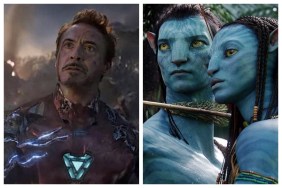Long ago it was suggested to me that the “Star Trek” franchise was the only science fiction that didn’t claim that technology would one day doom the entire human race. Although I responded that Ghostbusters would be at least one exception to that rule (because in an ongoing battle between the supernatural and unlicensed particle accelerators, unlicensed particle accelerators win every time), I was forced to concede that they had a point: a vast amount of science fiction begins with the conception of a new technology, and in order to develop a dramatic story out of that idea, the technology typically needs to have a pretty big downside.
There are too many examples to mention them all here, but inventing an artificial intelligence usually threatens to bring about the apocalypse (Metropolis, The Terminator, The Matrix) or at least a ton of murders (2001: A Space Odyssey, Blade Runner). Time travel threatens the very foundation of the universe (Back to the Future) or at least creates so many problems that it probably wasn’t worth inventing in the first place (Primer, Timecrimes, Looper). And god help you if you even think about bringing anyone back from the dead (Frankenstein, Re-Animator) or building any kind of robot (Metropolis, The Terminator and Blade Runner again).
But the demonization of technology doesn’t begin and end with science-fiction movies, because the world we now live in – thoroughly interconnected thanks to these magical mini-computers we all keep in our pockets – would have looked like science fiction just a few decades ago, and yet movies still treat these commonplace devices like the enemy. For example, talking on your cell phone and playing video games are now cinematic shorthand for emotional unavailability. One even gets the impression that screenwriters would prefer we do away with cell phones altogether, since they only get in the way of old-fashioned storylines. Why don’t you play a little game: the next time someone in a movie says they can’t get any reception, imagine how the rest of the plot would unfold if their phone had worked perfectly. The odds are good that the movie would be over in just a few minutes.
On the surface, Earth to Echo appeared to be yet another one of those cynical technophobic movies, at least in principle. Dave Green’s film is about a group of young kids who find a tiny robot that sends them on a fantastic adventure to repair its broken parts and send it back into space. But dang it, it’s also found footage movie, so no matter how life-altering their journey may be, they’ll never get to put those phones down long enough to experience it properly. Oh, those kids these days… how sad for them, right?
Well… wrong. Earth to Echo is one of the few movies that both accepts and celebrates the incorporation of technology into our modern lives, and it’s one that wouldn’t have been possible any other way.

Related: Earth to Echo: Director and Screenwriter Interview
Throughout Earth to Echo the heroes embark on one miniature adventure after another, traveling throughout the county in their search of various missing parts and even stealing a car to help them complete their task. Their phones are valuable tools that make this adventure even bigger. GPS makes it possible to locate their targets within the film’s narrow time frame (a single night), and Google helps them learn how to drive a car instead of figuring it out entirely on their own and probably dying in the car crash that would have almost certainly followed.
But more to the point, the robot, “Echo,” needs the cast’s camera phones to be on at all times, because its eyes are broken and it uses those phones to see. Earth to Echo forces the young actors to communicate directly with the person on the other end of what is essentially a feature-length video chat in order to move the story forward.

It’s a clever conceit, one that justifies a found footage gimmick better than most other movies, but on a dramatic level it also supports the film’s larger, more human story. The heroes of Earth to Echo are all being forced to move into different cities, and will therefore need to continue their own friendships online if they are ever going to stay in touch. So the technology isn’t the point by itself. Technology is a facilitator, bringing people closer together and allowing them to share an adventure despite the disadvantages of geographic space or physical ability.
The possibilities of a cast interconnected by technology have yet to be properly explored by mainstream cinema. Too often films use the aforementioned excuses to keep people apart, or the aforementioned cheap irony that communication through technology either leads to or simply emphasizes a disconnection from the so-called “real” world. (See also: The Social Network.) Earth to Echo isn’t alone, of course. Joe Dante’s Explorers imagined techology as a direct link between children and a universe full of unexpectedly explicable wonders, David R. Ellis’s underrated thriller Cellular examined the dramatic possibilities of leaving a cell phone on for the entire movie as opposed to arbitrarily turning one off, and Mamoru Hosoda’s Summer Wars envisioned a near future in which an extended family is a microcosm for a greater interconnected universe, each creating and solving its own problems the way society always has but on a simultaneously limited and grander scale.

Related: The Best Movie Ever: Kids Sci-Fi
But what does make Earth to Echo special is that tells its story entirely from the perspective of children who never knew the world without the internet, or even without cell phones, and who are obviously perfectly capable of experiencing that outside world in a healthy, productive and even heroic way. They have positive values – friendship and community – that they fight for using the tools at their disposal, and what’s more those tools make their story even more interesting. The tools don’t need to be neutralized by dramatic contrivance just to keep Earth to Echo moving forward. The adult villains of Dave Green’s film try their best, of course. They confiscate the children’s phones to keep them ignorant and complacent: inside, accepting the inevitable, instead of outside, actively making their community and even the universe a better place through the practical application of useful information and mobile connectivity.
Earth to Echo presents the world as-is (albeit with a robot in it), and it doesn’t even need to go out of its way to make that world seem like a hopeful place. The similarities between the story of Earth to Echo and classic kids movies like E.T. The Extra-Terrestrial, The Goonies and Monster Squad act as a shorthand; the film evokes the same feelings of youthful empowerment but in a modern and very different era. The values and time-honored stories of the past remain perfectly viable today, in no way hindered by social and technological development. Earth to Echo looks at kids in a contemporary setting and says not only that these kids are alright, but that these kids are actually all right. It believes in children and it believes that this technology won’t warp them, and will even give them new advantages. Which is something one imagines that kids themselves would probably appreciate: their generation being respected instead of feared.

Earth to Echo may not be an instant classic or anything very extravagant. Then again, maybe it may. But its depiction of a generation that embraces new ideas and technologies which make older generations nervous mean that it is a film that we desperately need. It’s an opening salvo against cynical fogies who can’t imagine a world without limitations, who have repeatedly endeavored to invent arbitrary limitations in one story after another, either because they aren’t creative enough to do their work otherwise or because they are simply fulfilling an unnecessary need to justify their own phobias. Regardless or even arguably because of its formula, Earth to Echo is a film of strength for the young and for the future.
Earth to Echo doesn’t seem to be on a fast track to making a lot of money or making a significant impact on the culture of cinema or the larger world in which we live. Neither did Blade Runner at first, so let’s just let time tell. But it’s certainly a film that deserves a broader audience for embracing and embodying an increasingly empowering aspect of our lives. It’s a rare breed of cinema that extracts strength from what many would consider a weakness, and one that sees only optimism where too many foresee only doom.
William Bibbiani is the editor of CraveOnline’s Film Channel and the host of The B-Movies Podcast. Follow him on Twitter at @WilliamBibbiani.








